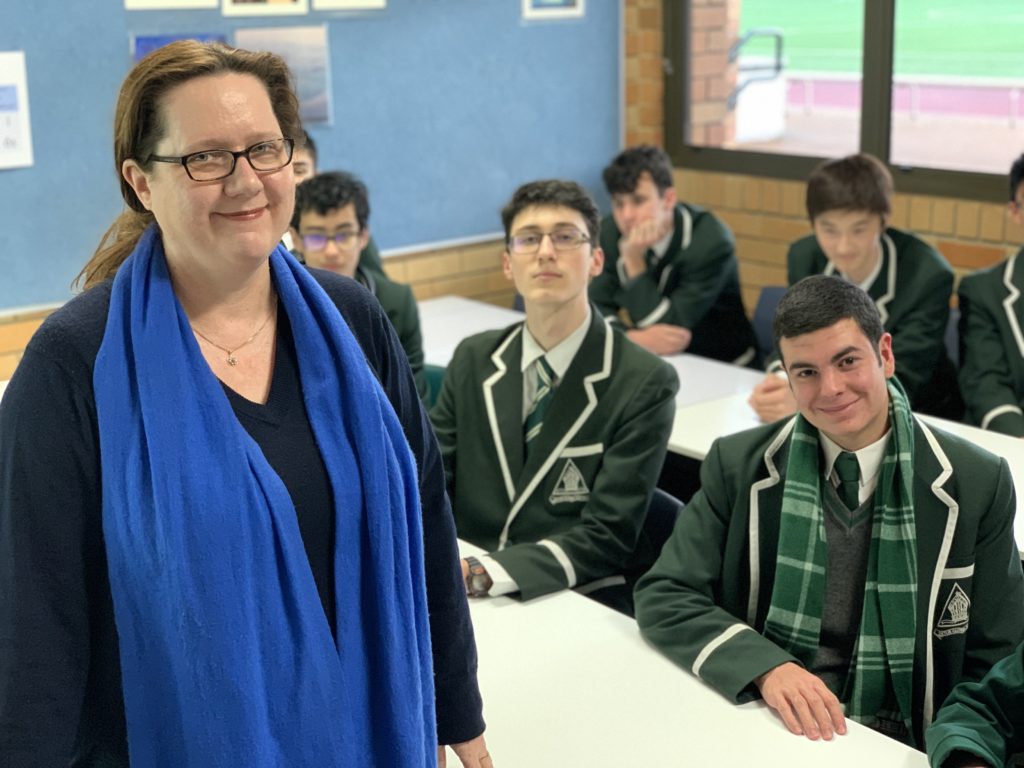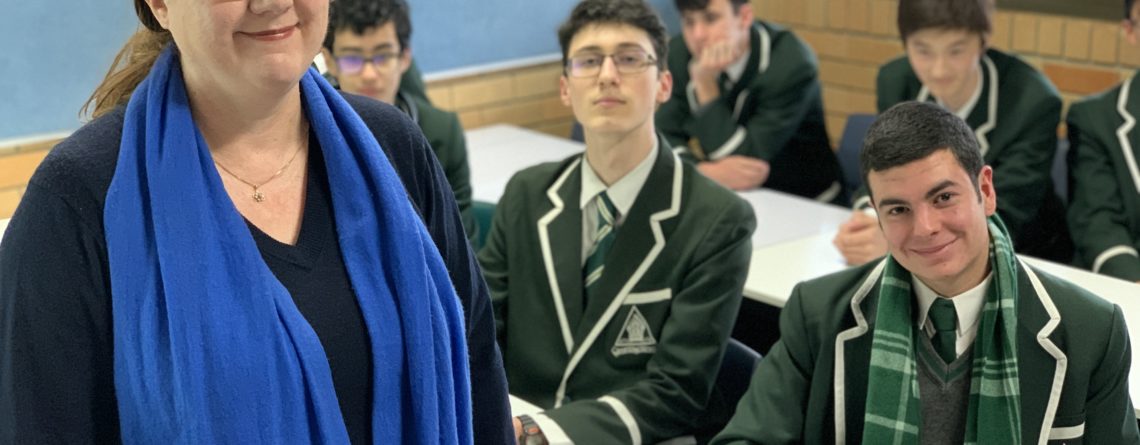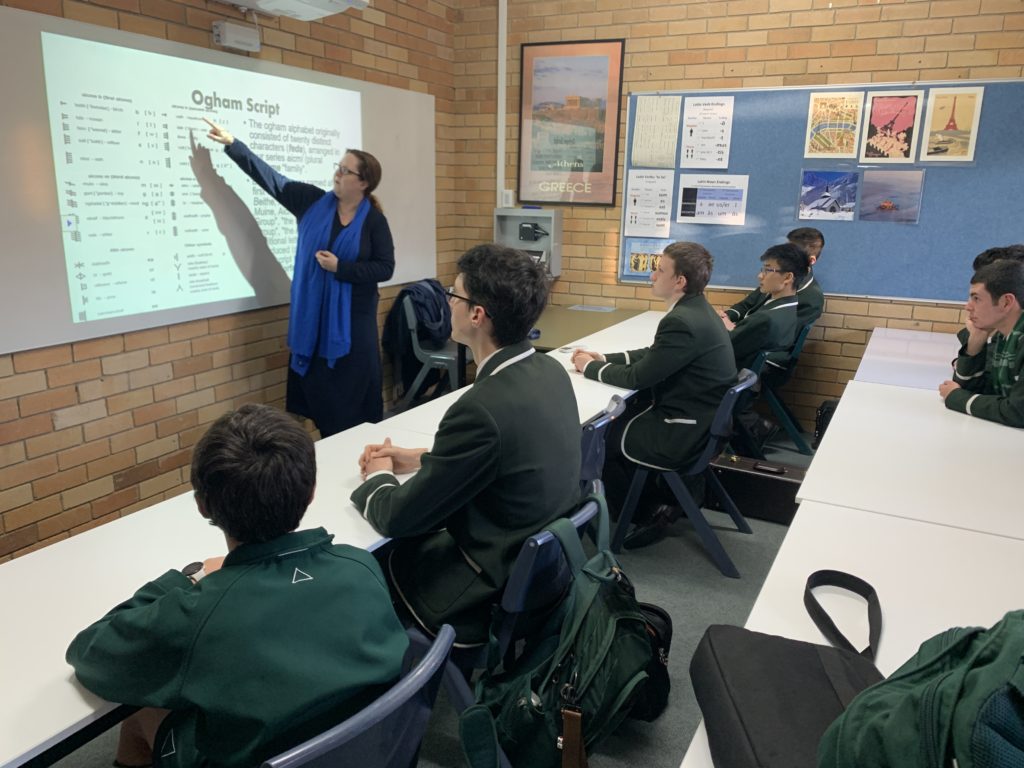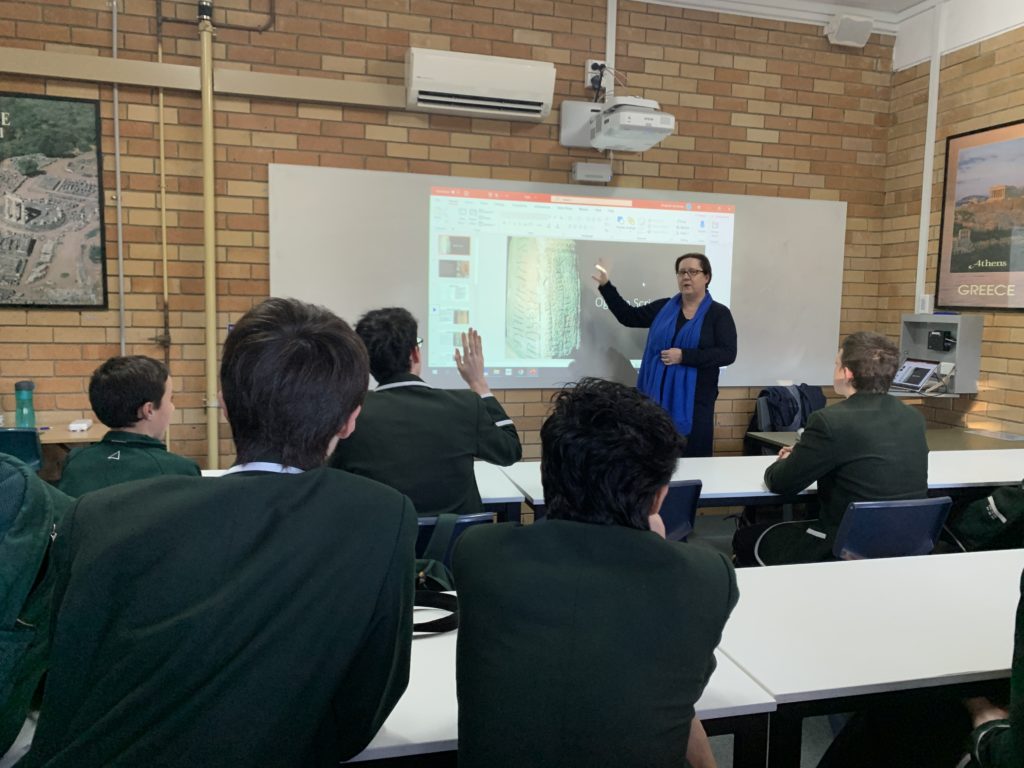Revisiting the past to understand the present
For many, Classical Languages are a whole different world but at Trinity, students get the opportunity to dive into this world and, for Dr Elizabeth Stockdale, the Classics are her area of expertise, bread and butter, spending a lot of time exploring them with students as she teaches them.

“I enjoy teaching Latin and Greek as both languages are the foundations for many European languages, and provide a ‘gateway’ to the Classical past, and how people thought,” Elizabeth says. “I find that classical texts teach students about the fundamentals in life: ethics and morality.”
“I strongly believe that classical languages should be taught at Trinity. Learning these languages provides access to legal terms, scientific terminology, a firm base from which to learn the romance languages – Spanish, French, Italian, Portuguese – as well as German and Modern Greek.”
While Classical Languages are a window to the past, they can also provide insight and knowledge into current events too.
“Classical texts also teach students about ethics and morality,” Elizabeth explains. “In today’s climate of COVID-19, lockdowns, and even the war in Ukraine, stoicism as a concept and as a practice have been explored by many people in the world. Classics give us the very concept of Stoicism through Epictetus, Seneca, and Marcus Aurelius.”
Digging even deeper into her love of antiquity, Elizabeth is the Coordinator of the Archaeological Society at Trinity. The group operates through discussions across year levels in a deeply respectful and enquiring environment.
“I provide an informal presentation on topics such as excavations, decipherment of a range of different ancient languages, cultural heritage topics, the problems with the antiquities trade, and the ‘underworld’ of antiquities – the black market.
“We have also discussed the ethics of displaying objects from antiquity in museums and the ‘control’ some major museums have over antiquities from other countries, e.g the Parthenon Marbles and the Treasures from Troy.”
The Archaeological Society also functions as an ‘Old Boys’ network within the wider Trinity network, with many members of the Society keeping in touch with each other long after they graduate – something that Elizabeth is proud of.
Naturally, Elizabeth spends plenty of time examining the past through her roles at Trinity, but she has plenty to look forward to in the near future too.
In August, The Classical Languages Teaching Symposium is being held at the University of Sydney and Elizabeth is the co-organiser of the event. With a focus to bring together teachers of Classical Languages from both secondary schools and universities, the aim of the event is to share teaching practices – particularly those cultivated during lockdown – and the incorporation of I.T. and any specific pedagogies.
Elizabeth has also recently had her Doctorate in Classics conferred. Her thesis was a literary and semantic study of female figures and ethics in Homer’s Odyssey.
She has been positioned as an Honorary Associate in the Classics and Ancient History Departments at the University of Sydney and, in 2023, Elizabeth will head to the United Kingdom as a Visiting Research Scholar at the University of Cambridge for Homeric Greek. While there, she intends to make an IB Classical Languages contact at Fettes College, Edinburgh, securing a useful overseas contact for Classical Languages at Trinity.
Want to know more about working at Trinity? Check out all the employment opportunities available.


















